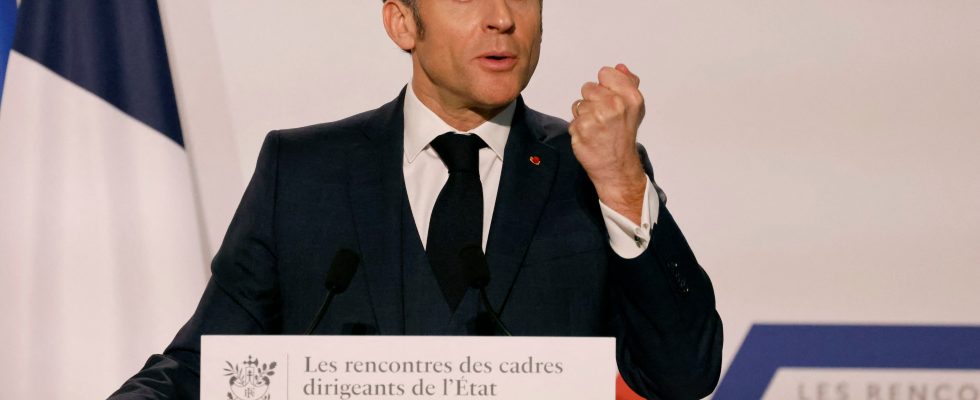This Tuesday, March 12, Emmanuel Macron ordered senior civil servants to “simplify more quickly” public action and to meet the “commitments” made by the executive, noting that in the end , “it’s bibi who pays”.
“We have to go much faster and stronger in terms of simplification,” he reframed in a speech of almost an hour in front of 700 “state executives” gathered face-to-face in Paris or by videoconference. “At each level, we put brakes and at the end, where you have put a hundred in force, we arrive at five or ten” in terms of state reform, he lamented.
He reminded these senior officials of the reproaches (“he lives elsewhere”, “he is disconnected”) that the French address to him during his travels: “so it’s ‘bibi’ who pays”, he scolded . “It’s good for no one, because it means that we left the President of the Republic […] make a commitment, and we accommodated ourselves, we said ‘we’re going to do as we’ve always done'”, he lamented, insisting: “in the end the last kilometer must be done.”
“If we know how to reform ourselves, change our (administrative) culture, we can be one of the first countries to respond to this crisis of confidence,” he assured.
A “culture of results”
Borrowing from the terms of the business world, “senior executives” rather than senior civil servants, or “managerial practices”, Emmanuel Macron called for a “culture of results”, of responsibility” and “taking responsibility”. risk” within the State.
“The department prefect must be a boss of the State,” he insisted, wishing for a “massive movement” to deconcentrate central services at the department level. “The right link is departmental, regional deconcentration is not perceived as deconcentration,” he said.
In terms of simplification, he asked for less “delays, paperwork”. He also called for “systematizing” the National Refoundation Councils (CNR), at least in Education and Health, which make it possible to bring together administrations, local elected officials and active forces (businesses, unions, etc.) around the same table. associations..). The CNR, “I believe in it a lot”, he said while his initiative at the start of the second term aroused a lot of skepticism.
